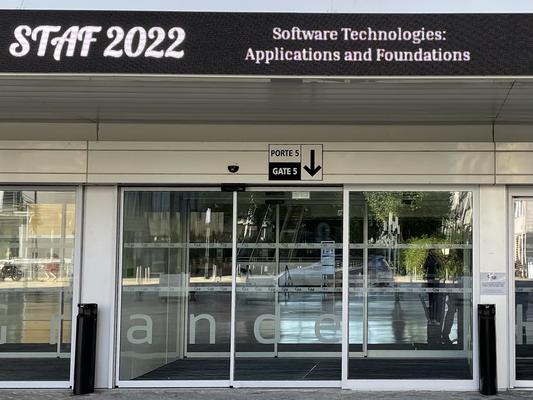Most recent news
AI Training at Aérocampus

(04 July 2025)
The Aérocampus of Nouvelle Aquitaine is a training center for aeronautical technicians. It's a unique campus where industry plays a major role. Here, airplanes (including a Rafale) and helicopters of...
2025 Agrégation Jury

(23 June 2025)
Since 2022, France has finally established an external computer science agrégation. I remember my own computer science classes in middle school (on PCs with 5"1/4 floppy disks and MO5/TO7 machines)....
Does AI Still Belong to Digital Science ?

(03 June 2025)
I had the pleasure of opening the AI Day in Nouvelle Aquitaine, organized by AI in Nouvelle Aquitaine. For this occasion, I allowed myself to venture into areas close to...
2025 Graduation Ceremony

(15 March 2025)
Last Saturday was, as every year, the graduation ceremony for the students of ENSEIRB-MATMECA, where I am still the head of the Computer Science department for a few more months....
Weekly Eco Interview on TV7

(20 February 2025)
Last Wednesday, I had the opportunity to answer questions from Stéphanie Lacazze, from Sud Ouest, as part of [Hebdo Éco](https://www.sudouest.fr/lachainetv7/economie/l-hebdo-eco/) on TV7. It’s a local TV channel belonging to the...

In early July, I went to Nantes to participate to the STAFF/TAP conference. It was in France and I wanted to see Software Verification in practice and the impact of propositional logic / SAT solvers in this field of research (coffee breaks were the place to ask questions!).
Once again, I pretty much liked the work of Daniela Kaufmann and Armin Biere (slides here] about fuzzing for verification tools. If fuzzing was already nice with random circuits in SAT solvers (see for instance the tool “fuzzsat” of Armin Biere), this approach allows to build structured problems for fuzzing. Fun. This fuzzing techniques may be also an amazing tool for performance assessments.
(Last Modified date: 19 October 2022)





